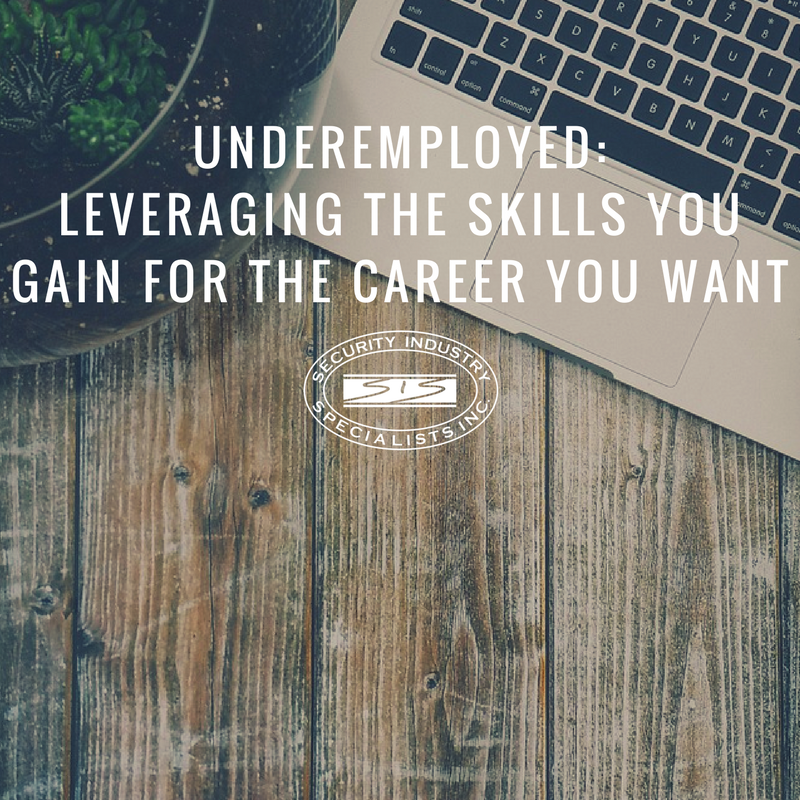By Hailey Sherwood, Recruiting Coordinator
Just prior to SIS I comfortably belonged within the 45% of college graduates today who are underemployed. “Hostess at a restaurant” was not a part of my post-graduation plan, but there I was. And somehow I managed to learn more during my time as a hostess than in any of my previous jobs. As I rose up in the restaurant, I was job-searching on the side. After interacting with dozens of recruiters from countless companies, I finally came to realize that I wanted to go in recruitment myself. I felt confident that I could identify candidates because the extent of my “job-seeker” status. Helping someone find employment was a cause I could get behind.
When I landed my job with SIS, I was so excited to put my restaurant days behind me and start working for more than just a paycheck. But after being a Recruiting Coordinator for a few months now, I have begun to realize that so many of the skills I built in hospitality have helped me wear the many hats necessary for recruiting.
Candidate Concierge: Just as a host is the first person you see at a restaurant when you walk through the door, a Recruiting Coordinator is often the first person to “touch” a candidate during the recruiting lifecycle. Much how a host passes the guest off to the server, I pass candidates along to a Recruiter or Hiring Manager and they get to make the final decision. However, I get to own the fact that I had the candidate first, and because of that they often look to me once my role is, theoretically, done. It feels good to know that it all started with you!
Crew Member: Much like a restaurant, so much goes on behind-the-scenes in recruiting. As a hostess, it was my job to coordinate seating arrangements in a way that maximized revenue for the restaurant – while also taking into account server’s sections and strengths, the capacity of the kitchen and a myriad of other factors. As a Recruiting Coordinator, it is my responsibility to coordinate interviews amongst Recruiters, Hiring Managers, and candidates; and putting together their schedules in a way that meets the client’s timeline and creates a seamless candidate experience. Given multiple clients and openings that a single candidate might qualify for, and multiple parties affected by a single hire, it’s not as easy as you might think!
Careful Collaborator: Working in a hospitality is a great way to learn the challenge and reward that comes with being a part of a team. Sometimes doing what will make the guest happy means sacrificing the happiness of someone else on the staff. You must figure out how to leverage doing professional, quality with making everyone happy. As a member of a recruiting team (both in Seattle and company-wide), I’m constantly challenged to focus on my own tasks, as well as helping the entire recruiting department succeed.
I think the moral of my story is that while some jobs may have more specific requirements than others, so much of being able to successfully pivot in your career comes down to being able to strategically connect the dots from where you have been to where you would like to be. All work experience yields very fundamental “human” skills: these soft skills can make you a valuable employee, no matter the scope of your work. Even if your current job appears worlds apart from the space you would like to occupy, there are likely similarities that you can find to both sell yourself in the interview and kill it once you arrive.
It’s all about being able to market yourself and the skills you’ve learned. It often doesn’t matter what you majored in, or your previous positions: if you are able to thoughtfully convey what skills you’ve gained that will assist you in rocking the position, you’re able to stand out.
I encourage those who are seeking a career change to look beyond the title, rank and especially the perception of your current role to see how it might relate to your future. You might be surprised as to what you find.

